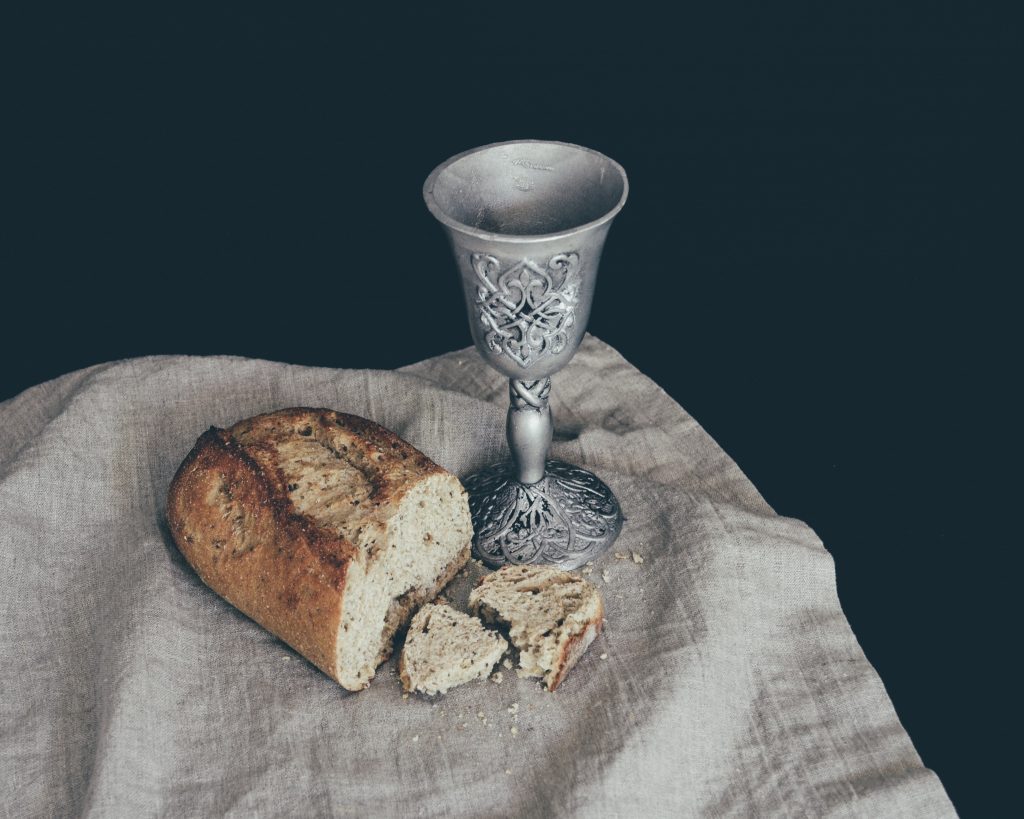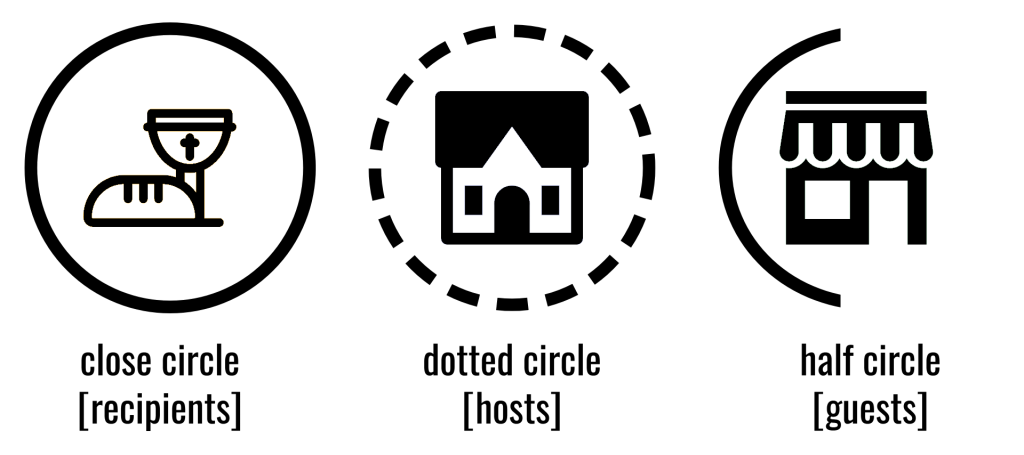The discipline of the Lord's Table
 Photo by Debby Hudson on Unsplash
Photo by Debby Hudson on Unsplash
The discipline of coming together regularly around the Lord’s Table helps us return to Christ and trains us to tend to Christ’s presence not just here, but everywhere we find ourselves during the week.
Think about some of what we do every time we gather around the table:
First, we say the Creed. We renew our commitment to Christ and his kingdom by professing explicitly that we believe he is Lord, he God, he is alive and the fundamental implications of that.
Second, we exchange the peace. We externalize our desire and God’s plan that we would be at peace with one another because we are peace with God.
Third, we say prayers of thanks and blessing for the great works of God on our behalf, and we explicitly invite the Holy Spirit to empower us to be more like Jesus by allowing to us feed on him in our hearts by faith and with thanksgiving.
Fourth, we bring our material gifts to the table, offering back to God the first fruits of what he has blessed us with.
Fifth, we are energized as God gives gracious of himself to us in Jesus.
The idea is that in this time of discernment of Christ’s presence, we learn to live lives of commitment, forgiveness, reconciliation, worship, sacrificial generosity, and living by grace all the time. And we learn not just to live it all the time, but see it in any place. As we learn to discern Christ’s presence in these things, we join God on mission where he is at work.
So, I hope you can see how foundational what we do on Sunday morning is to a life of mission—because the discipline of the Table isn’t confined to Sunday Morning.
David Fitch suggests in his book Faithful Presence, that we think of the Discipline of the Lord’s Table has happening in three circles.

The first circle is the “close” circle. This is what happens on Sunday Morning. Here we gather as God’s faithful people. Christ is host and we are the guests at a family meal.
The second circle might be called the dotted circle. Here, we take the kind of life we discerned in and express in the close circle, and we live it out in our own homes, primarily among Christians but with a special space to welcome the stranger to a literal table, a real meal in the community. As people gather around the Christian’s table, Christ’s presence is brought into the neighborhood. Now, this still takes discernment! This isn’t just a fun barbeque but a time of intentional prayer, reconciliation, discussion, and explicit tending to the presence of Christ around a common meal.
We can think of the third circle as a half-circle or open circle. The half circle is the world where the hurting and broken people live their everyday lives. These are the corner coffee shops, the bars & pubs, the restaurants on busy streets. Fitch says,
Into these half circles Christians go, imitating Christ as he enters the homes of the marginalized, the publicans, and the sinners.In the half circle we are especially weak, vulnerable, and out of control. It is an opportunity to identify with Jesus and tend to his presence in a special way, the way he tended to our presence by visiting the homes of those estranged from God.Here, like Jesus, we go, not as hosts inviting people to our table, but as guests, submitting ourselves to the hospitality of others.[1]
We need all three circles. If we only practice the close circle, we have gone into maintenance-mode, and we’ve lost the mission of table fellowship in and with the world. If we practice only the dotted circle, we lose the crucial space to connect people in our neighborhoods and areas of influence to the presence of Christ.
Finally, if we attempt to practice only the half circle, we quickly become exhausted from the effort with not renewal at the close circle and sustaining relationships in the dotted circle.
Each of us has an opportunity today to evaluate how we are practicing this discipline in all three circles.
We can’t afford to neglect this discipline. It’s absolutely foundational, because the discipline of the Table comes to us straight from Jesus and leads us straight to Jesus. It is the first place where his abundant life is expressed among his faithful people. It challenges our social, economic, and political order and reorients us back to Jesus and his Lordship in his upside-down kingdom, where the weak are strong, the last are first, the lost are found. And it is the discipline that makes way for us to invite others into that kingdom.
[1] Fitch. Faithful Presence, p. 61
 NRH
NRH